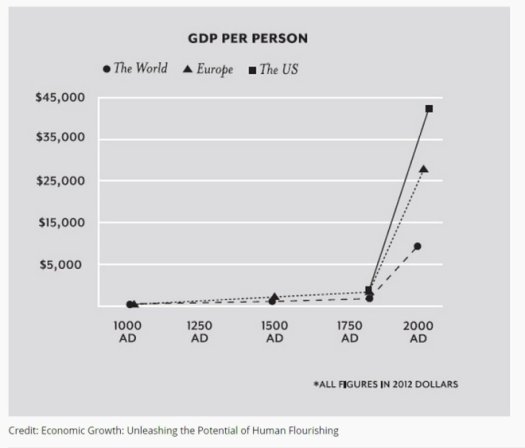From a great piece by Kevin D. Williamson at National Review.
Right now, we are embroiled in a deeply, deeply stupid debate over whether to raise the statutory minimum wage to $15 an hour. (I write “statutory minimum wage” because the real minimum wage is always and everywhere $0.00 an hour, as any unemployed person can confirm for you.) Because everything in the economy is in reality priced relative to everything else, using the machinery of government to monkey around with the number of little green pieces of paper that attaches to an hour’s labor manning the register at 7-Eleven or taking orders at Burger King is, necessarily, an exercise in futility. The underlying hierarchy of values — the relative weighting between six months’ work washing dishes and six months’ tuition at the University of Texas — is not going to change. Prices in markets are not arbitrary — they are reflections of how real people actually value certain goods and services in the real world. Arbitrarily changing the dollar numbers attached to those preferences does not change the underlying reality any more than trimming Cleveland off a map of the United States actually makes Cleveland disappear.


